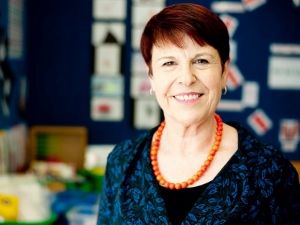
The CPAG report, It shouldn’t be this hard: children, poverty and disability, found that 15 per cent of children with disabilities live in households with incomes under $30,000, compared with 10 per cent of all children.
NZEI president Louise Green said this finding lined up with what teachers saw at school, as the extra care these children required had a heavy impact on the number of hours parents could work.
“It is hard enough for children to overcome the disadvantages of poverty when they don’t have a disability. Dealing with both is a heavy burden for the children, their families and the schools that are trying to give every child a quality education,” she said.
The report makes a number of recommendations around schooling, which NZEI supports.
“We agree with the recommendation that government acknowledge the role of Special Education Needs Coordinators in schools and accordingly fund a staffing entitlement directly through school budgets.
“The funding and allocation of services for disabled children also needs to be reviewed in partnership with the disability sector to identify shortfalls and find ways to improve service delivery in ways that are child-focused.
“NZEI has long been calling for more resources and support for children with special education needs, including children with disabilities. Kids are missing out on reaching their potential because the money is simply not there to support their schooling.”
A new parent portal from the Ministry of Education aimed at engaging parents and whānau…
The announcement of $53 million to cover teachers’ registration and practising certificate fees has been…
Applications for charter school conversion appear to have dried up after strong interest from the…
Will watching the Netflix drama Adolescence help us have hard conversations with young boys and…
Many students lack basic practical life skills like budgeting, letter writing, and preparing for a…
Educators and politicians are trying to address the current teaching shortage through different policy settings.…
This website uses cookies.